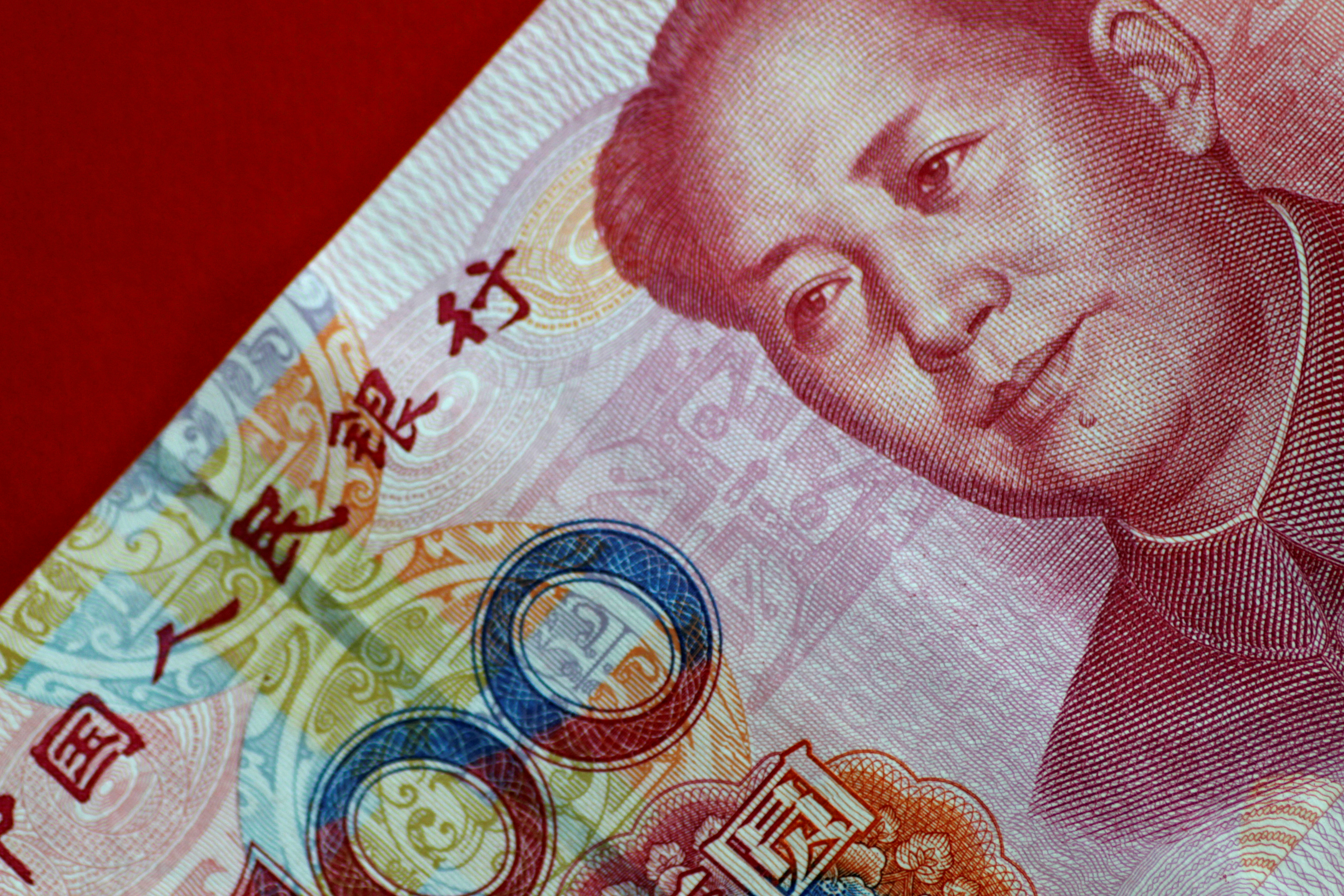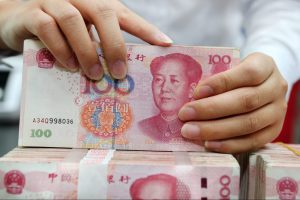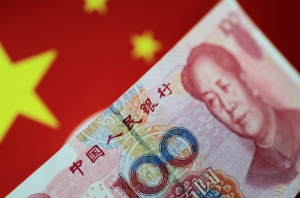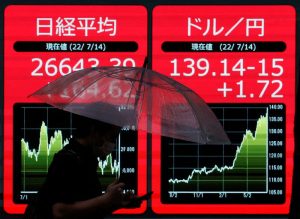(ATF) The People’s Bank of China has pledged to improve supervision of the bond rating sector after a series of defaults rattled the country’s $4 trillion corporate debt market. Meanwhile, a former executive at one of China’s top credit rating agencies has been suspended amid claims he took “massive” bribes.
Pan Gongsheng, vice-president of the central bank, told a forum he presided over last Friday: “Problems such as false high ratings, insufficient discrimination, and weak pre-warning functions have restricted the high-quality development of our country’s bond market.”
Pan said that the rating industry should “conscientiously sum up experience and lessons, adhere to professional ethics, be diligent and responsible, and strive to improve rating capabilities and quality.”
The PBoC would work with other departments to strengthen market discipline, improve the quality of ratings, enhance credit differentiation, and better enable rating agencies to play the “gatekeeper” role in China’s bond market, he said.
Domestic rating agencies have been under a closer regulatory scrutiny recently.
Bribery scandal
On Monday, state-owned Golden Credit Rating, which generated 263 million yuan ($40.3 million) in revenues last year, was suspended from issuing new securities ratings for three months after officials said they would prosecute Jin Yongshou, the agency’s former general manager, and another executive for allegedly taking bribes to boost the ratings of issuers.
This news came after Dagong International was suspended from conducting new securities ratings for a year in 2018, after it overcharged for services such as providing counselling to rated companies.
In an effort to help strengthen the credit culture and quality, China’s authorities have also allowed international rating giants such as S&P and Fitch to establish onshore entities and provide rating services in the domestic bond market.
“To improve the quality and reliability of China’s domestic ratings, measures need to be taken to address the issues such as weak corporate governance, conflict of interest, and lack of transparency,” Ke Chen, Chief Analytics Officer at Pengyuan Credit Rating Co Ltd, told Asia Times Financial in reaction to Pan’s comments.
Ratings way higher than global standards
“China’s domestic rating agencies have long been criticized for issuing ratings which are lack of credit differentiation. The vast majority of China’s bond issuers are initially rated at or above AA by domestic rating agencies. With limited selectable rating categories (ie, AAA, AA+, and AA), the domestic rating agencies’ capacity to evaluate default risks is significantly impaired,” Chen said.
The concentration in the high rating categories is largely because of regulatory requirements on issuing and investing in public offering bonds, Chen told ATF.
With the particular regulatory environment, China’s rating industry has developed a unique domestic rating scale that is very different from the global rating system, and the ratings of domestic rating agencies are generally much higher than those assigned by international rating agencies.
More than 95% of bonds issued in China are rated AA and above, compared to less than 6% in the US, according to the book The Future of China’s Bond Market, published last year.
“In fact, the domestic rating scale discourages international investors from participating in China’s onshore bond market, since their investment guidelines and risk management systems are constructed on the basis of the global rating scale,” Chen said.
Weak pre-warning functions
China’s domestic rating agencies have also been criticized for not providing early warnings of issuers’ defaults.
While international investors have flocked to Chinese treasury and local government bonds because of their superior yields to their global peers, the recent defaults of several top-rated state-owned enterprises (SOEs), including Huachen Automotive Group? (the Chinese partner of BMW), plus Tsinghua Unigroup and Yongcheng, a government-owned coal miner, caused severe turmoil in the bond market in recent weeks.
These defaults have also torpedoed investor assumptions that authorities will always bail out state-owned enterprises. All of these were groups were rated AAA before their defaults.
“In China’s bond market, it is not uncommon to see the defaulted bonds downgraded from AA or above directly to defaulted status. This lack of timeliness raises concerns on the reliability of China’s domestic ratings and undermines market participants’ confidence in those ratings,” Chen said.
Ineffective corporate governance
Another issue of China’s rating industry is the lack of effective corporate governance and internal control.
“As gatekeepers to financial market, credit rating agencies have powers to assist issuers in accessing public debt markets and influence their cost of capital. On the other hand, the rating service revenues in China are relatively low by international standard,” Chen said.
In Chen’s view, it would be very difficult to prevent the rent-seeking activities and unethical business practices unless effective incentive alignment and proper internal controls are in place.
“As one of the infrastructures in the bond market, credit ratings play a crucial role in revealing credit risks, resolving information asymmetry, and improving market efficiency,” Chen said.
He believes credit ratings which are comparable across geographical regions and asset classes will help international investors better participate in China’s bond market.
China’s bond market attracted about 900 billion yuan ($137.8 billion) of inflows in the first 11 months of this year as foreign investors increased their holdings of Chinese treasuries and debt issues by big policy banks.
But their exposure to the default-hit corporate credit market is low so far.
Moody’s and Fitch declined comment for this story. S&P Global did not respond to a request for comment.
























